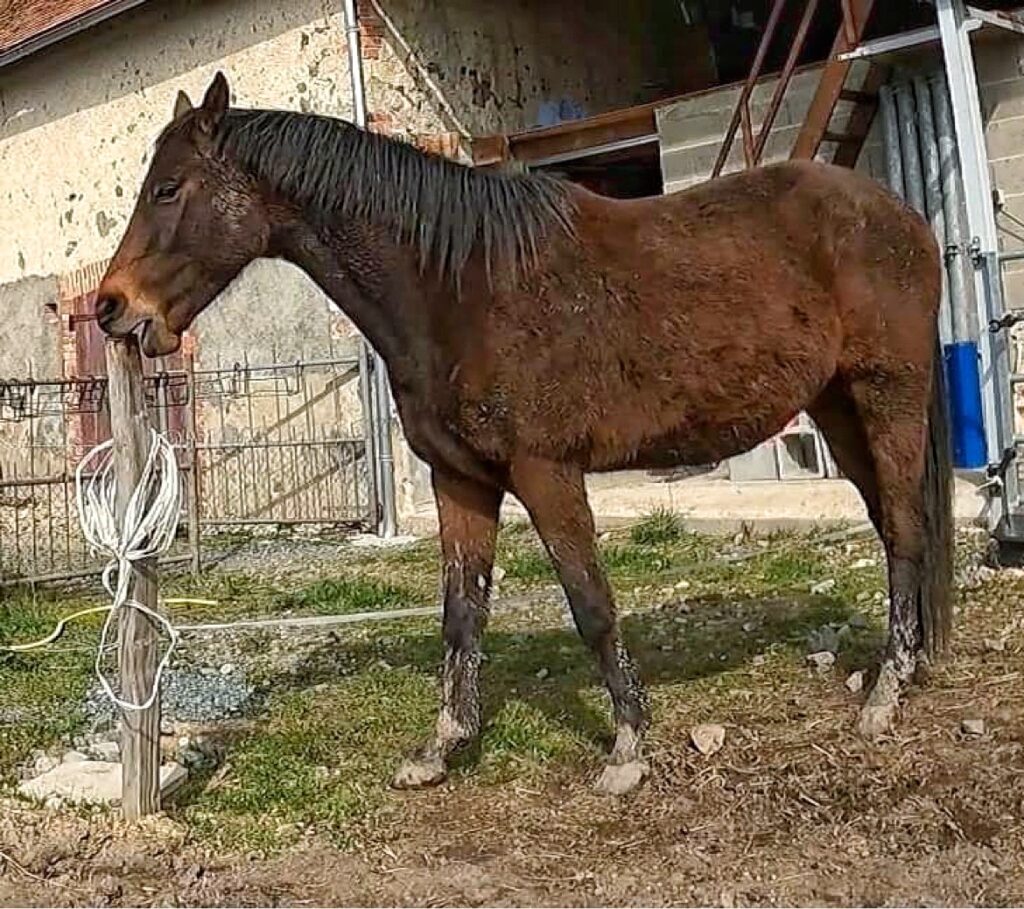Holistic Herd Life with Allison Kraft is a fun dive into a variety of topics involving horse care and the process of becoming more attuned to the horses’ needs.
Horse Care
Equine Dentistry with Dan Astle-Carter
Excerpt from the Equine Dentistry podcast with Dan Astle-Carter
Equine Dentistry is the practice of removing rough and sharp edges of horses’ teeth, as well as balancing any significantly uneven wear patterns. Horses chew their food with a sideways motion of the jaw. Sharp edges develop because the horse doesn’t always use the entire surface of their teeth when chewing, so the central parts will wear faster.
Horses chew with a circular sideways grinding motion which dictates the wear pattern on their molars and over time creates sharp points on the inside edge of some teeth and the outside edge of others.
Palmetto Equine Veterinary Services
Do horses know that dentistry can help them? How do they react to wearing a gag and having tools in their mouths? Dan Astle-Carter has been a practicing Equine Dental Technician for over 17 years and he shares his experiences about a wide range of subjects. In this podcast we go into the ideal diet for a horse’s teeth, including older horses. We talk about behaviour, tools, surgery, sedation, bits and more.
Join Soul Herd to see both parts.
Limitations and Boundaries with Laminitis
A look at limitations and boundaries with Querida. Part of my journey with laminitis.
Querida the pony and I have shared a lot of feelings over this hot summer. Feelings that emerged have included anger, frustration, annoyance, stubbornness, and feelings of being restricted. Querida has been breaking my fences and I have been repairing. She is getting into fields she shouldn’t be in, and this brings up her pulses and the laminitis flares up.
At times I have got so cross with her seeming self-destructive mood that I have found myself dragging her back out of the field in annoyance. Querida then gets stubborn, ignoring me, and not moving, because I am not asking in a nice way and we just keep on spiralling. It is even worse when this all happens in the middle of the afternoon when it is scorching hot!
Connecting with a Horse that Cribs
A journey into understanding the feeling that can create a cribbing reaction.
Most of us are aware of the physical issues of cribbing and wind-sucking in horses including ulcers, colic, physical imbalances, and loss of teeth, to name a few. We could also spend some time debating all the environmental aspects that may cause cribbing such as early weaning, stabling and the like. But none of these debates or discussions has ever helped me find a way of connecting to Timmy at a level where I could help him help himself.
Timmy’s History with Cribbing

Timmy has been with me since 2011. He cribs and wind-sucks on all available wooden posts, tyres, and even the steel posts that hold up the roof to the horse shelter. There has never seemed to be any reason for this. He cribs after eating a bucket of food, but then he will also stand in a pasture and crib for no apparent reason. He lives out 24/7. He will stand in the horse shelter with his herd companions and crib on the doorway. He has cribbed when I have sat on his back. He cribs on the mares instead of grooming. When I was looking for a ‘reason’ I couldn’t find one.
This led me to ask a number of questions.
Hospice For Horses
Awareness of hospice for horses is growing as we challenge traditional beliefs
I never set out to be a spokesperson for hospice care to a natural death for horses. I always knew that euthanasia didn’t resonate with me, but I had no intention of speaking about alternatives publicly. But listening to the senior horses in my care, and four horse deaths later brought the topic to front and center. Only for the love of the horse and what I learned from them about dying am I willing to stick my neck out.
How My Journey Into Horse Hospice Began
Twenty years ago I got back into horses as an adult through volunteering with a non-profit. I fell in love again with the horses, but I decided that I would never have my own horse. I didn’t believe in euthanasia, and I also knew that horses were big animals. Dramatic things could happen, and euthanasia could come on the table. I took care of that pesky problem by deciding to never have my own horse. Then I could avoid the entire topic. I would enjoy volunteering and being around horses, but never have full responsibility, never have to deal with the end of life.
